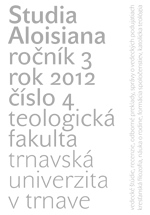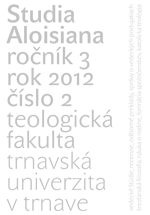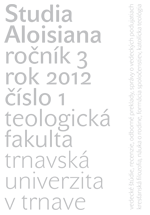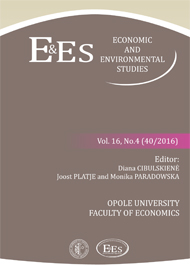
Child with Special Needs in the Family – a Greater Risk of Divorce?
Je postihnuté dieťa v rodine činiteľom zväčšujúcim riziko rozvodu?
Keywords: child with disability;with special needs;family;problems of parents;divorce;quality of life;
The article points out that in a society, among us, live families with disabled children that meet with serious problems. Help they need is not often offered to them. In particular, this consists in the synergy between the professional and human assistance. This is the main objective of the Department of Social Work – teaching on the family of the Faculty of Theology of the University of Trnava. Such a family meets various crises. One of the consequences may be a divorce, if there is no condition in a family with a disabled child properly mastered. The article brings the problems of the family in which a child is born with special needs, since the first information about the child’s disability. It discusses the problem that concerns the parents themselves and their ability to cope with this difficult situation. How this affects the quality of their life? The aim of this contribution is to find an effective source of support for families with a child with special needs.
More...


